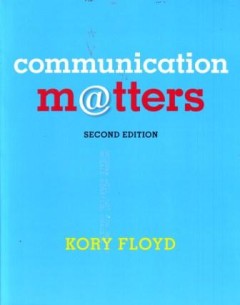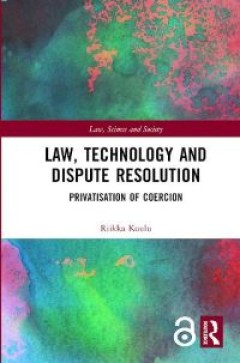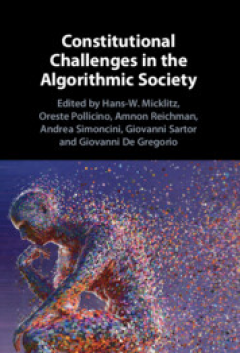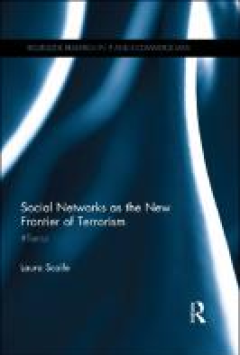Ditapis dengan

Journal of Integrated Communications NorthWestern University
- Edisi
- 1
- ISBN/ISSN
- -
- Deskripsi Fisik
- -
- Judul Seri
- -
- No. Panggil
- 302.205 Jou
- Edisi
- 1
- ISBN/ISSN
- -
- Deskripsi Fisik
- -
- Judul Seri
- -
- No. Panggil
- 302.205 Jou

Applications Communication : For Personal and Professional Contexts
- Edisi
- -
- ISBN/ISSN
- 0-931054-75-3
- Deskripsi Fisik
- xvii, 526 hlm.; 23 cm.
- Judul Seri
- -
- No. Panggil
- 302.2 Pay a
- Edisi
- -
- ISBN/ISSN
- 0-931054-75-3
- Deskripsi Fisik
- xvii, 526 hlm.; 23 cm.
- Judul Seri
- -
- No. Panggil
- 302.2 Pay a

Business Communications
- Edisi
- -
- ISBN/ISSN
- 0-316-19533-2
- Deskripsi Fisik
- xviii, 718 hlm.; 23,7 cm.
- Judul Seri
- -
- No. Panggil
- 658.45 Dum b
- Edisi
- -
- ISBN/ISSN
- 0-316-19533-2
- Deskripsi Fisik
- xviii, 718 hlm.; 23,7 cm.
- Judul Seri
- -
- No. Panggil
- 658.45 Dum b

Interpersonal Communication
- Edisi
- 2
- ISBN/ISSN
- 0-415-20793
- Deskripsi Fisik
- viii, 254p.; 30 cm.
- Judul Seri
- -
- No. Panggil
- 153.6 Har i
- Edisi
- 2
- ISBN/ISSN
- 0-415-20793
- Deskripsi Fisik
- viii, 254p.; 30 cm.
- Judul Seri
- -
- No. Panggil
- 153.6 Har i

Tools for Cultural Studies : an Introduction
- Edisi
- 1
- ISBN/ISSN
- 0-7329-1935-5
- Deskripsi Fisik
- x, 230p.: ill.; 22,5 cm.
- Judul Seri
- -
- No. Panggil
- 302.22 Thw t
- Edisi
- 1
- ISBN/ISSN
- 0-7329-1935-5
- Deskripsi Fisik
- x, 230p.: ill.; 22,5 cm.
- Judul Seri
- -
- No. Panggil
- 302.22 Thw t

Communication Matters
- Edisi
- 2
- ISBN/ISSN
- 978-0-07-803686-6
- Deskripsi Fisik
- xxx, 444 hlm.: ilus.; 28 cm.
- Judul Seri
- -
- No. Panggil
- 302.2 Flo c
- Edisi
- 2
- ISBN/ISSN
- 978-0-07-803686-6
- Deskripsi Fisik
- xxx, 444 hlm.: ilus.; 28 cm.
- Judul Seri
- -
- No. Panggil
- 302.2 Flo c

Law, Technology and Dispute Resolution: The Privatisation of Coercion
The use of new information and communication technologies both inside the courts and in private online dispute resolution services is quickly changing everyday conflict management. However, the implications of the increasingly disruptive role of technology in dispute resolution remain largely undiscussed. In this book, assistant professor of law and digitalisation Riikka Koulu examines the mult…
- Edisi
- 1
- ISBN/ISSN
- 978-1-315-14947-9
- Deskripsi Fisik
- 226 hlm.
- Judul Seri
- -
- No. Panggil
- -

Balancing Privacy and Free Speech: Unwanted Attention in the Age of Social Media
In an age of smartphones, Facebook and YouTube, privacy may seem to be a norm of the past. This book addresses ethical and legal questions that arise when media technologies are used to give individuals unwanted attention. Drawing from a broad range of cases within the US, UK, Australia, Europe, and elsewhere, Mark Tunick asks whether privacy interests can ever be weightier than society’s int…
- Edisi
- -
- ISBN/ISSN
- 978-1-315-76313-2
- Deskripsi Fisik
- 239 hlm.
- Judul Seri
- -
- No. Panggil
- -

Constitutional Challenges in the Algorithmic Society
New technologies have always challenged the social, economic, legal, and ideological status quo. Constitutional law is no less impacted by such technologically driven transformations, as the state must formulate a legal response to new technologies and their market applications, as well as the state's own use of new technology. In particular, the development of data collection, data mining, and…
- Edisi
- -
- ISBN/ISSN
- 978-1-108-91485-7
- Deskripsi Fisik
- 342 hlm.
- Judul Seri
- -
- No. Panggil
- -

Social Networks as the New Frontier of Terrorism
Terrorism. Why does this word grab our attention so? Propaganda machines have adopted modern technology as a means to always have their content available. Regardless of the hour or time zone, information is being shared by somebody, somewhere. Social media is a game changer influencing the way in which terror groups are changing their tactics and also how their acts of terror are perceived by t…
- Edisi
- -
- ISBN/ISSN
- 978-1-315-66868-0
- Deskripsi Fisik
- 216 hlm.
- Judul Seri
- -
- No. Panggil
- -
 Karya Umum
Karya Umum  Filsafat
Filsafat  Agama
Agama  Ilmu-ilmu Sosial
Ilmu-ilmu Sosial  Bahasa
Bahasa  Ilmu-ilmu Murni
Ilmu-ilmu Murni  Ilmu-ilmu Terapan
Ilmu-ilmu Terapan  Kesenian, Hiburan, dan Olahraga
Kesenian, Hiburan, dan Olahraga  Kesusastraan
Kesusastraan  Geografi dan Sejarah
Geografi dan Sejarah